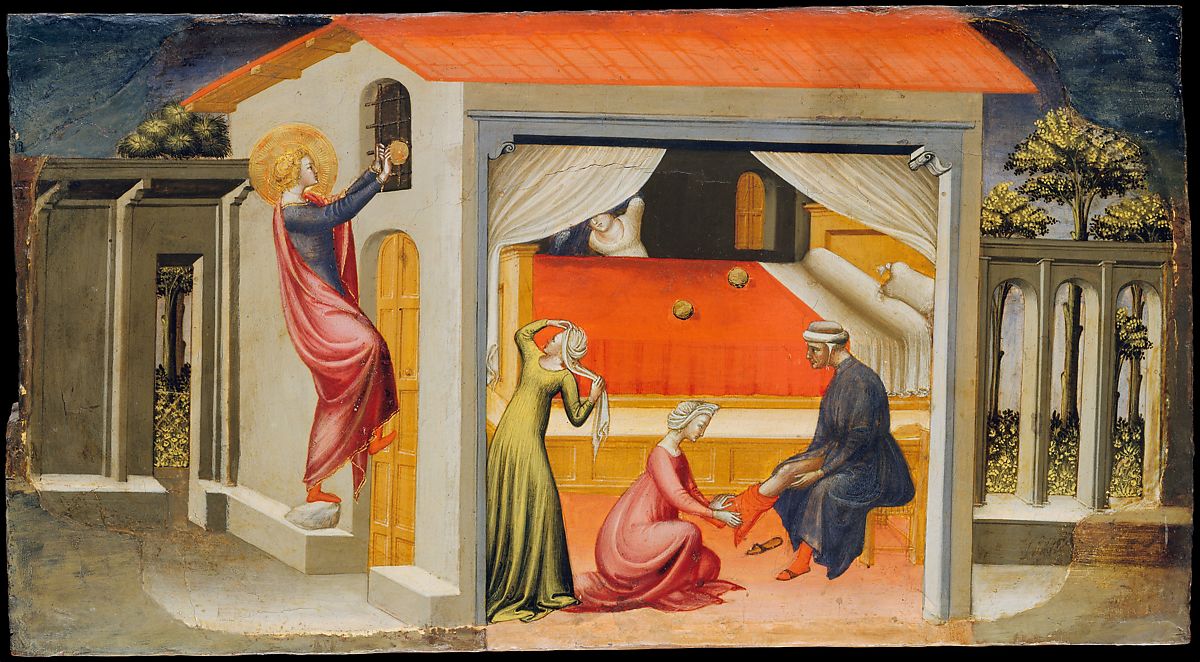.
Limerick
I have lived my whole life about me
And at last I can finally see
That my choice only smothers,
Life is all about others
And the truth really does set you free.
.
.
Senryu
I was born to dance.
Alas, I sat on my ass
When given the chance.
.
.
Haiku
Wind rustles the pines.
Crickets chirp in the thickets.
The night is breathing.
.
.
What is that, friend?
Take heed, what perches on that rail?
__A blue jay, friend, without a tail.
Has he a tale to tell, you think?
__Indeed! He broke free from the mink!
.
.
Joe Tessitore is a retired New York City resident and poet.
















Fun barbs!
Also I like [crickets in thickets] for sonics; that was nice.
Thanks, Daniel.
I especially like the last two. The Haiku has the
obligatory surprise ending and the last also a final
surprise but not obligatory as far as I know.
Nice, Joe! Hope those sentiments in the first two are not autobiographical. If so, well . . . you’re not dead yet!
They are, Gail, but as you say, I’m not dead yet (and I have no regrets).
Good going on all 3, Mr. Tessitore. Thanks! In line with jd’s comment: I like the rhyme & the ass-onance in the middle of the senryu. What about a contraction in line 4 of the limerick?
Thanks, Julian.
I was counting syllables in line 4, to square it with line 5.
Ah, I see! I should have caught that, especially since you use the same approach in the last line. (Whereas I was rolling along in groups of 3 syllables & got tripped up. I may be hung up on expectations of baroque gigue / jig phrasing.)
A contraction would wreck Joe’s perfect anapestic meter in the limerick. The whole poem reads by syllable as no-stress, no-stress, STRESS. “Smothers” and “others” have an extra unstressed syllable that does not count for the meter; it is simply a feminine ending.
Joe, I love these poetic nuggets of wisdom. They are all blessed with wit and wonder and infused with lessons in life. My favorite is the Haiku – in its brevity it manages to conjure a nocturnal image with musicality and pine-scented magic. It also tells this reader to wrap herself in the beauty of night’s breath. Thank you!
Thank you so much, Susan.
My dear Cousin Arleen gave me the final line of the haiku – verbatim – as she did for a previous poem;
“What flies in the wind in the night?”
Only a poet speaks like that.
Joe, you are the Heart of New York City, and you must keep beating — Thub-dup.
Thanks very much, C.B.
A quick tale from the City:
Our neighbor down the hall invited us to a party and, in her invitation, asked if we were fully vaccinated.
We told her that was a matter of medical privacy, thanked her for the invite, and told her to have her party without us – no offense taken and none given.
She wrote back that she would be offended if we didn’t come, and wrote that we could wear masks and stand out on her terrace! She assured us that we wouldn’t be alone!
Remarkably enough, Mrs. T wants to go!
If the situation permits here on the page, I’ll keep you posted.
Joe, these are all beautifully polished with rhyme, rhythm, wordplay, and sentiments. You do especially good work in showing how rhyme can meaningfully ornament the Japanese forms, where it is neither necessary nor customary. I would say the final line of the haiku is not so much a surprise, as a thought that interprets and connects the earlier two lines. This is a level of sophistication characteristic of haiku masters. “Crickets” is an autumn word, by the way. One great resource with haiku is a website entitled “The Five Hundred Essential Japanese Season Words.” Of course, you are entitled to use New York City season words.
Thank you, Margaret, very much.
Your comments are always gracious and always informative. I do appreciate them and I do look forward to them.
The haiku really does belong to Arleen. Mrs. T. and I recognized it for the poetry that it was as soon as she spoke it.
It took me a while to realize that it was five syllables and then I recognized it for what it really only could be – the cutting line of a haiku.
All that was left for me to do was come up with some night sounds, and Arleen’s line pointed me in that direction as well.
On a final note, the blue jay and the mink in the last little poem are real. The jay is a regular visitor to our feeder, along with all the other birds.
If you walk the stone walls out here in the country – where the mink live – you’ll find any number of blue jay tail feathers. The mink have obviously mastered the art of hunting the jays, and our guy almost certainly broke away from one of them.
I love the wit of the last one. Regarding the first three – is it customary to label them as haiku, senyru, etc. as opposed to giving them a title?
Short and exact, getting to the pithy fact (s).
Neat, Joe.
All 4 of these little poems are delightfully entertaining. I prefer very short poems over unusually long ones any day, especially when they tell a good tale, as each one of yours does.